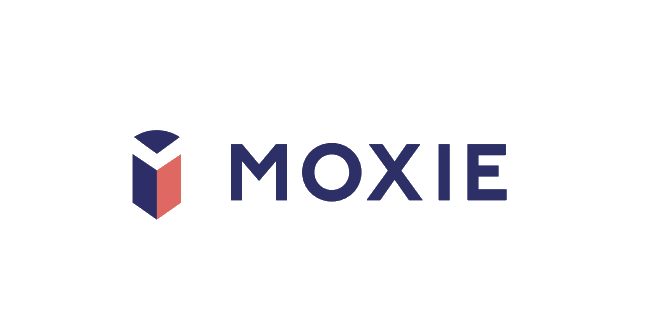Each one Teach One: How to Foster Critical AI Literacy in Higher Education
By Drs. Desi Richter & Kimberly Becker
As academics who are early adopters of AI, we are dedicated to fostering a climate of ethical AI use. We regularly work with faculty and students and partner with several higher education institutions to deliver AI-powered solutions. We take our roles very seriously and, as such, we often attend to how to educate ourselves and those utilizing our tools in academic settings. Amid concerns about ethics and the need for technological competence, we are becoming even more convinced that technological competence (e.g., AI literacy) is imperative.
But how?
A friend shared with me an article about how legal professionals are encouraged to keep abreast of technological advances, arguing for technological competence among all legal practitioners. This serves as a clarion call for us in academia, underscoring the necessity of staying abreast of relevant advances but with a more nuanced understanding of AI's role. Just as lawyers risk ethical breaches and professional sanctions for technological shortcomings, those of us who identify as academics, scholars, or educators must embrace a multifaceted approach to AI literacy, ensuring responsible and ethical engagement with these transformative technologies.
My brain immediately went to the idea of cascading knowledge sharing. At the heart of this effort lies the ethos of "each one teach one" — a concept rooted in the democratization of knowledge sharing. Historically tied to the African American community's quest for literacy during slavery, this philosophy champions the power of cascading knowledge through peer-to-peer learning. Even In today's digital age (which, we might argue, is post-digital), it offers a blueprint for fostering AI literacy across all levels of higher education, from administrators guiding faculty, to faculty empowering postdocs and graduate students, who, in turn, nurture undergraduates' understanding of AI. It can also work in the reverse direction, of course!
This cascading approach promotes accessibility and aligns with the multifaceted nature of AI literacy itself. Drawing from Selber's (2004) digital literacy framework, the insights of Dr. Maha Bali, and the critical perspective offered by Helen Beetham, we can identify key aspects that demand our collective attention.
Functional Literacy: Educators must grasp the functional aspects of AI technologies that can transform teaching and research. Bali's guidance on prompt crafting and assessing appropriate use of AI offers practical approaches, while Beetham cautions against inadvertently fueling AI hype by adopting the industry's promotional language.
Critical Literacy: Just as lawyers navigate potential biases and ethical dilemmas presented by digital tools, educators must cultivate a critical understanding of AI. This critical literacy, exemplified by Bali's examination of AI biases and Beetham's challenge to notions of inherent intelligence, ensures AI's use aligns with ethical standards, academic integrity, and social justice principles.
Rhetorical Literacy: The increasing prevalence of AI-generated content underscores the importance of rhetorical skills in the digital realm. Educators must develop the ability to convey complex information clearly and persuasively, leveraging AI as a tool that reorganizes human work rather than an independent creator, as Beetham suggests.
By embracing "each one teach one" and fostering AI literacy across these domains, we democratize knowledge and empower the academic community to engage with AI responsibly and ethically. However, as Bali and Beetham note, this pursuit must be guided by a nuanced, context-specific approach, tailoring AI literacy based on students' needs and course contexts while maintaining academic values beyond productivity measures
Moreover, Beetham's thought-provoking perspective on AI as a socio-technical project underscores the importance of critical examination. While AI literacy is essential, it must be accompanied by a willingness to challenge AI's role in academia, ensuring its integration enhances rather than diminishes the human dimensions of teaching and learning. Beetham's insights remind us that AI models refer to the existing world of digital content, highlighting the need for critical literacy in evaluating AI-generated content and its sources in academic research
Just as the legal profession has set a precedent for technological competence, higher education can pave the way for a digitally literate society equipped to navigate the complexities of the AI-driven future. In this endeavor, the insights of pioneers like Dr. Maha Bali and Helen Beetham serve as guiding lights, reminding us that true AI literacy extends beyond mere technical proficiency. It encompasses a deep understanding of these emerging technologies' ethical, social, and intellectual implications, ensuring our pursuit of innovation remains grounded in humanity's collective well-being.
Of course, “each one teach one” begs the question of who is teaching who? Who is the knowledge cascading through? Who is having these conversations?
If we are to embrace an “each one teach one” approach to fostering AI literacy, we need to utilize existing university infrastructure. Librarians are already recognized (and often under-utilized) purveyors of knowledge. Students are usually viewed as those “at risk” of using AI; yet they possess valuable AI literacy skills that can be conveyed “up the waterfall.” Rather than penalizing students, faculty can learn to partner with them. In this way, knowledge and implementation of AI can become less top-down mediated, with faculty who are often ill-educated being placed in gatekeeping roles for which they are not prepared. Faculty AI champions can take the lead in these conversations.
In addition to working within existing university structures, we are fostering a collaborative community of educational AI adopters. Each week, we meet online for an hour and discuss issues critical to emerging best AI practices in higher education. These Insight Sessions are included in our Premium Membership. But, recognizing the need for each one to teach one, we are expanding the conversation to a new community of practice. This community, facilitated by Dr. Linda Lopez-George, is an online space for anyone utilizing AI in higher education to converse regularly. It’s time for each one to teach one — both within university structures and in spaces like ours.

